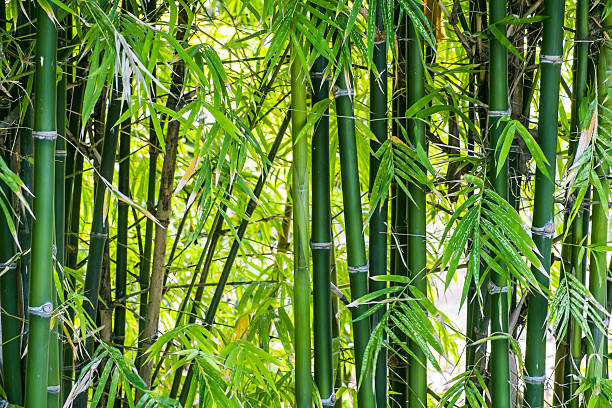By Prabir Sil
Agartala, Feb 24: The Tripura government has taken up a five-year plan to expand the bamboo production area exclusively for industrial use by nearly 100 times to 45,000 hectares of land, a senior official said.
Around 70 per cent of the country’s requirement of agarbatti bamboo sticks is supplied by Tripura and the government is keen to bring more such industries in the state, he said.
The northeastern state, which has an abundant bamboo resource, produces 21 species of bamboo.
“As of now, Tripura produces bamboo on 461.32 hectares exclusively for industrial use and we plan to increase that to 45,000 hectares in five years from 2025-26. Nine-thousand hectares will be added in each of these five years,” Tripura Bamboo Mission (TBM)’s Additional Mission Director Subhash Chandra Das told PTI.
The TBM has raised high-density bamboo plantation in 461.32 hectares from 2018-19 to 2024-25 exclusively for commercial purposes, he said.
Tripura has 4.20 lakh hectares of bamboo-bearing areas, according to the Forest Survey of India 2023 report.
But, in a major section of those areas, the bamboo cover is either thin or its quality is not good enough to make them useful for industrial purposes, Das said.
The objective of this plan for massive plantation is to supply bamboo smoothly for commercial or industrial purposes, he said.
The official hoped that if the plan, Tripura Bamboo Plantation Development Scheme, is implemented properly, several challenges in the bamboo production sector, especially transportation, will be removed.
“Transportation of bamboo from dense forests or hilly areas has emerged as a major challenge. If bamboo is grown on private land in relatively urban areas, we will not face any problem in bringing bamboo to factories,” Das said.
Besides, there will be no need to get permission from the forest department before cutting bamboo produced on private land.
“Thus, this plan will help supply bamboo to the industry in a much easier way,” the TBM official said.
The ambitious plan will be implemented with convergence of MGNREGA funds by the various government agencies, he said, adding that growers would need to arrange for land only.
Several government agencies such as the Tripura Rehabilitation Plantation Corporation, Tribal Welfare Department, Tripura Tribal Areas Autonomous District Council, Forest Department and the TBM will be engaged in the massive bamboo plantation programme.
Each of the agencies will be given an annual target of increasing the production area for five years, Das said.
He said that two big private firms are engaged at Bodhjungnagar bamboo park in West Tripura district, where they produce sticks for incense and tiles made of bamboo.
“Apart from the two, as many as 24 small-scale factories also produce incense sticks which have great demand in Bangalore, Andhra Pradesh, Guwahati and Kolkata,” Das said.
The current requirement of bamboo in the northeastern state stands at about 2 lakh MT per annum, which is expected to rise to 4 lakh MT annually in the next two or three years.
“The demand for different types of bamboo has been increasing with every passing year. Besides existing units, more bamboo-based industries are coming up in the state. That’s why the plan has been taken up to increase production areas,” the TBM officer said.
A new Integrated Bamboo Park is being set up in Unakoti district, which will also need regular supply of quality bamboo in the next 2-3 years. Besides, handicrafts and manufacturers of other products, located mainly in West Tripura and Sepahijala districts also need a steady supply.
Bamboo is also being used in construction and scaffolding purposes and raw and processed bamboo is also being exported to other states.
Das said the TBM is mobilising the farmers to create bamboo plantations and ensure sustainable income for long years as its durability of return is more than that of rubber, another key cash crop in Tripura.
The TBM, which functions under the state government’s Department of Industries & Commerce, was formed in 2007. Its objectives include building the bamboo sector as a major livelihood provider and boosting production and commercial infrastructure. (PTI)




